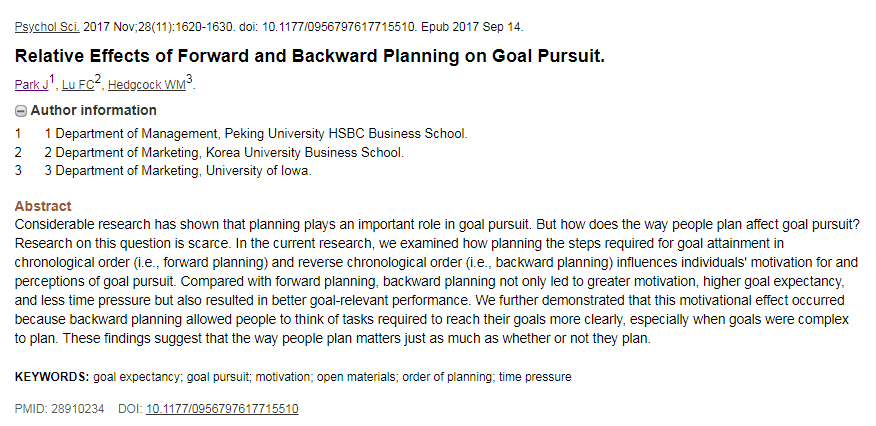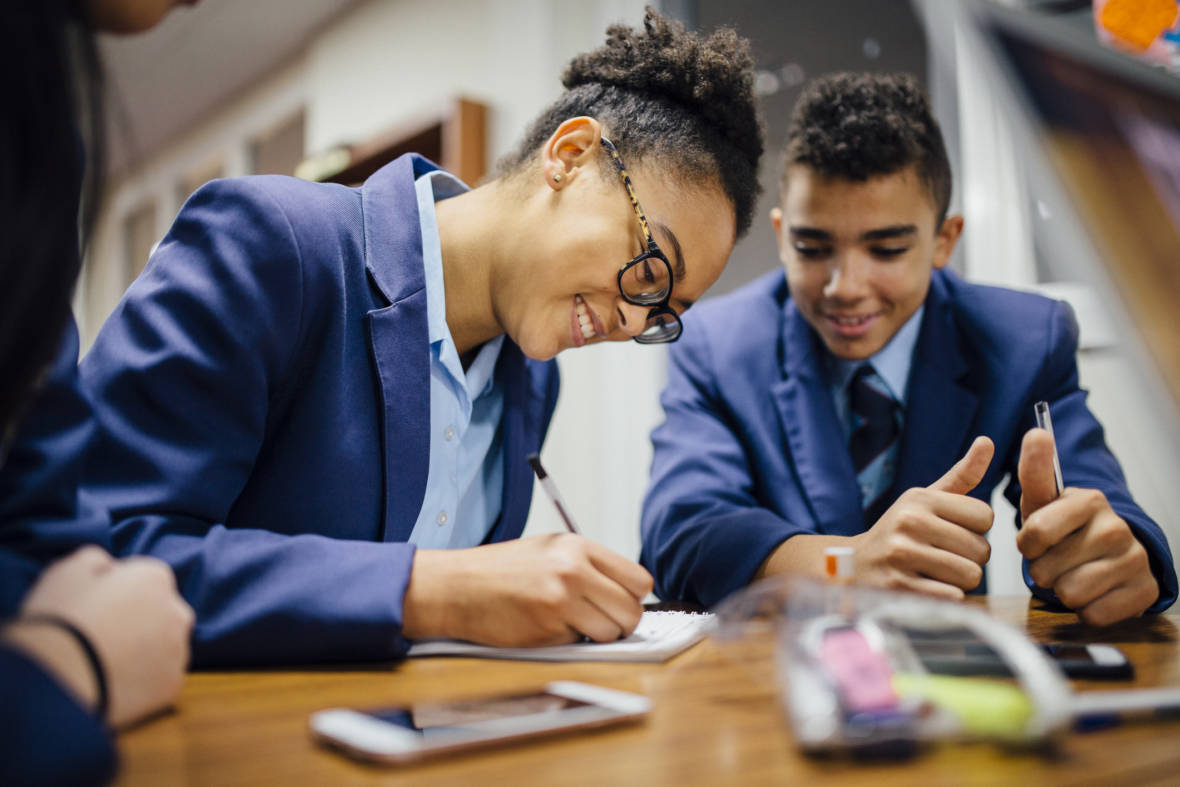Forward planners typically began the process by identifying what they needed to do before they could achieve their goals, and then slotted in those prep activities that were closest to the present—i.e., “read chapter 7”—and moving forward. Reverse planners typically began their plan with the activity that was furthest from the present and closest to the exam—i.e., “review key concepts”—and moved chronologically backwards from there. In the end, both forward and backward planners came up with very similar looking plans, Hedgcock said.
Other studies included students in different settings to assess how planning order affects motivation and actual academic performance, and to evaluate the role of goal complexity in planning. In all the studies, students were responsible for coming up with their own plans.
To their surprise, researchers discovered a marked difference in success between forward and backward planning. “Backward planning could change the actual outcome, student’s grades on an exam, in addition to motivation and perceptions,” Park said about their findings. This held true only when the goal was complex, Park added—say, a comprehensive final exam that required reviewing and integrating a lot of information, or a long-term research project that involved a sequence of related steps.
Even among the collection of students whose 15 exam-prep activities were identical, and whose plans looked alike, the results were striking. “The effects don’t seem to be driven by the plan itself,” Hedgcock said. “They seem to be driven by how the plan was constructed,” he added.
Reverse planning for challenging assignments is more effective than forward planning for a few reasons, the researchers noted. For one, it helps the planner consider critical steps and then identify likely obstacles—all from the point of view of having completed the goal, which sharpens clarity. “When visualizing the endpoint, things seem clearer and more positive,” said William Hedgcock. “If you start at the present, you could go this way or that way—it can be more negative,” he added, because of the multiple possible steps to be taken. Backward planning also kickstarts motivation at the time when inspiration lags most, during the middle of a goal pursuit. Finally, backward planning from an imaginary finished goal lessened the perception of time pressure.
These findings could have broad applications. Though the studies involved college kids, high school students would likely experience similar results, Hedgcock said. Also, while “complexity is in the eye of the beholder,” he said, a student who perceives an assignment to be complex might be more successful if she constructs a plan that starts with the end goal. “I have a four-and seven-year old, and figuring out what to wear to school every day is complex for them,” he said. Reverse planning might also help kids whose motivation often wilts, or who have lost track of what they’re trying to achieve, or who frequently feel strapped for time while working on tough projects. Though the studies did not look at different cohorts of kids, the finding suggests that children who struggle with executive function might benefit from this type of preparation.
The researchers were quick to point out the limits to their work. They hadn’t accounted for individual differences among the college students, which could play a role in outcomes. Their work consisted of just five studies, and included only university students. For simple goals, backward planning has no effect. “It’s something that should be examined further,” Hedgcock said.
















